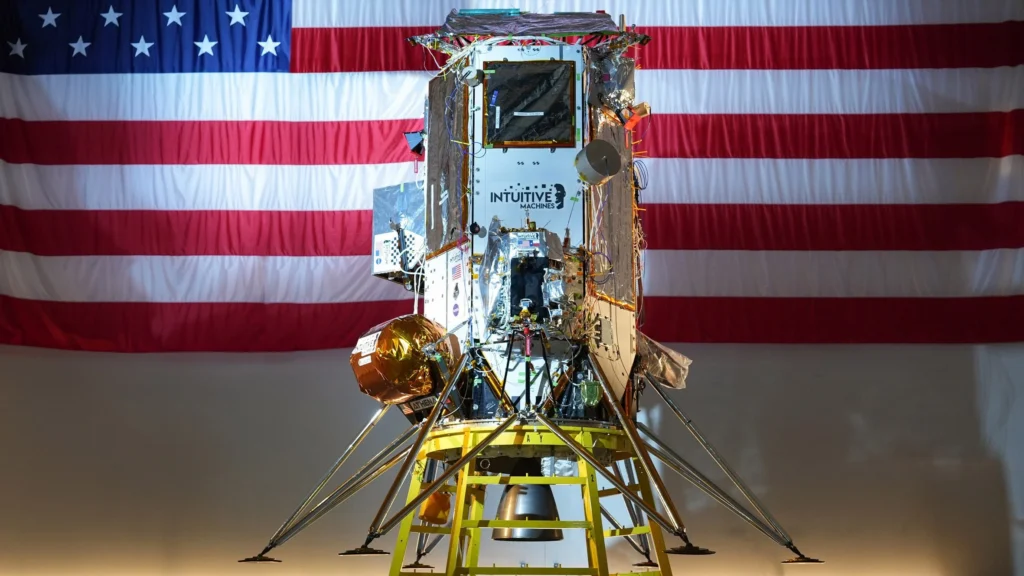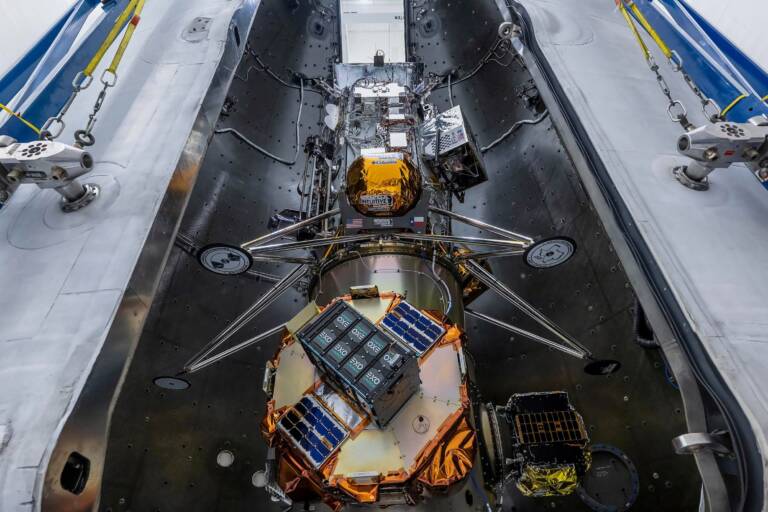On February 26th, 2025, Intuitive Machines launched its IM-2 mission aboard a SpaceX rocket from NASA’s Kennedy Space Center in Florida. The mission aims to land on the moon’s south pole, carrying experimental payloads, including a data center by BIG and protective insulation by Columbia Sportswear.
The Freedom Data Center, a collaboration between architecture firm BIG and tech company Lonestar, is a compact prototype designed to test lunar data storage. According to Lonestar CEO Chris Stott, the project envisions a “global backup” for critical data, ensuring resilience against Earth-bound disruptions. Columbia Sportswear is also testing its Omni-Heat Infinity and Omni-Shade Sun Deflector materials, which could help protect future lunar infrastructure from extreme temperatures. Another key experiment involves Nokia’s Lunar Surface Communication System, which will establish a 4G/LTE network for future space missions.
Intuitive Machines describes the mission as a “rideshare” service, transporting payloads for NASA and private companies. If successful, IM-2 will mark a significant step in the commercialisation of the moon, building on the lessons of its predecessor, IM-1.

The photography by SPACEX

